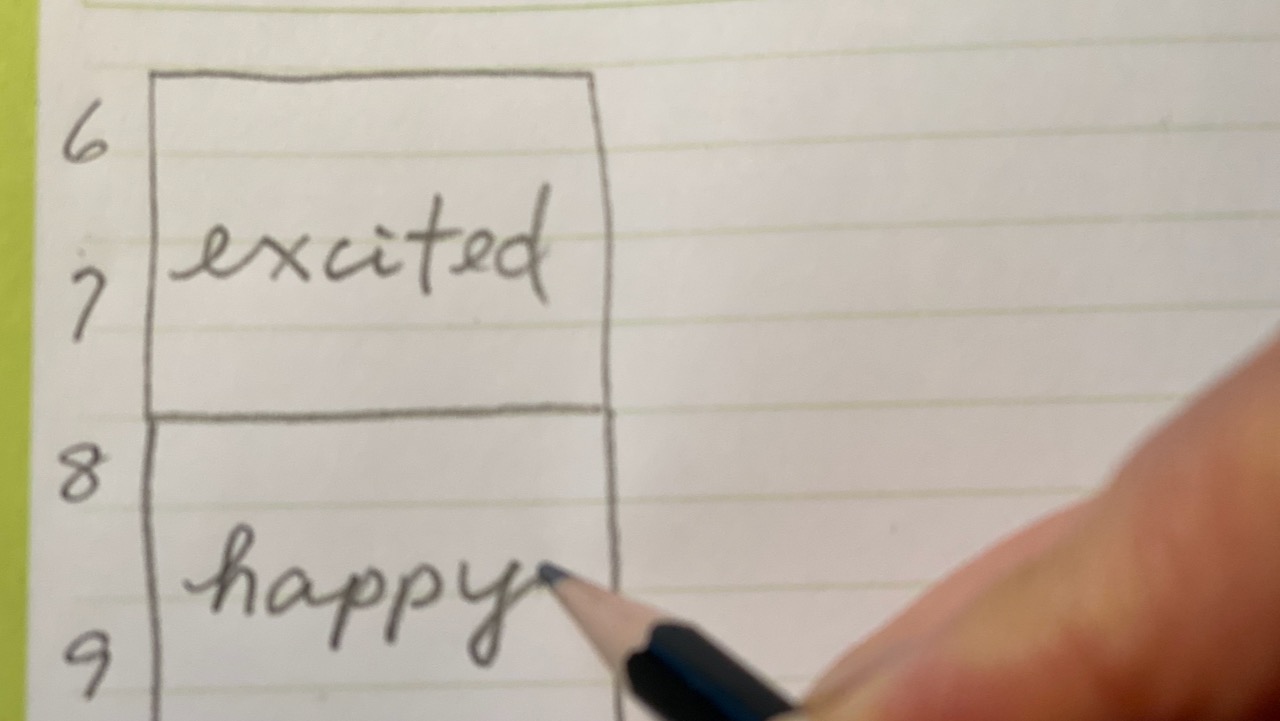Last year I started implementing Cal Newport’s Time-Block Planner method. Every morning I open my favorite notebook, draw two vertical lines to create three columns, fill the first column from 6am to 11pm, and fill the second with what I plan to do: write, read, have lunch with a friend, trade options, go for an errand, etc. If I divert from the original plan, by web surfing aimlessly, for example, I make corrections in the third column.
At the end of the year I looked back. By flipping the pages, I realized something was missing in my notebook.
I planned what to do, where to go, whom to meet. But I never planned how to be. Isn’t my state of being as important as my actions? If it’s important, why didn’t I include it in my daily planning? Is it because I don’t believe I can plan how to be, like when to be angry and when to be happy? If so, what is the ground for my belief? Why not plan how to be?
That morning I added another column in my notebook to plan how to be today, using words like happy, joyful, and playful. Words like angry, sad, or hateful are not included because they are diversions. Just as binge-watching shitty TV shows or web surfing aimlessly are diversions from my original plan. When I diverge (and it happens more often than it should,) I will try to resume my original plan.
I can choose not to web surf aimlessly but to read a book. Similarly, can I choose not to be angry but be joyful? If not joyful, at least calm? I check every once in a while to see if I’m spending my time doing what I originally planned or not. Similarly, shouldn’t I check if I’m in the state of being that I planned or not?
This is an experiment. An experiment worth carrying forward this year. Just like I plan to improve my writing, I plan to be happy!
